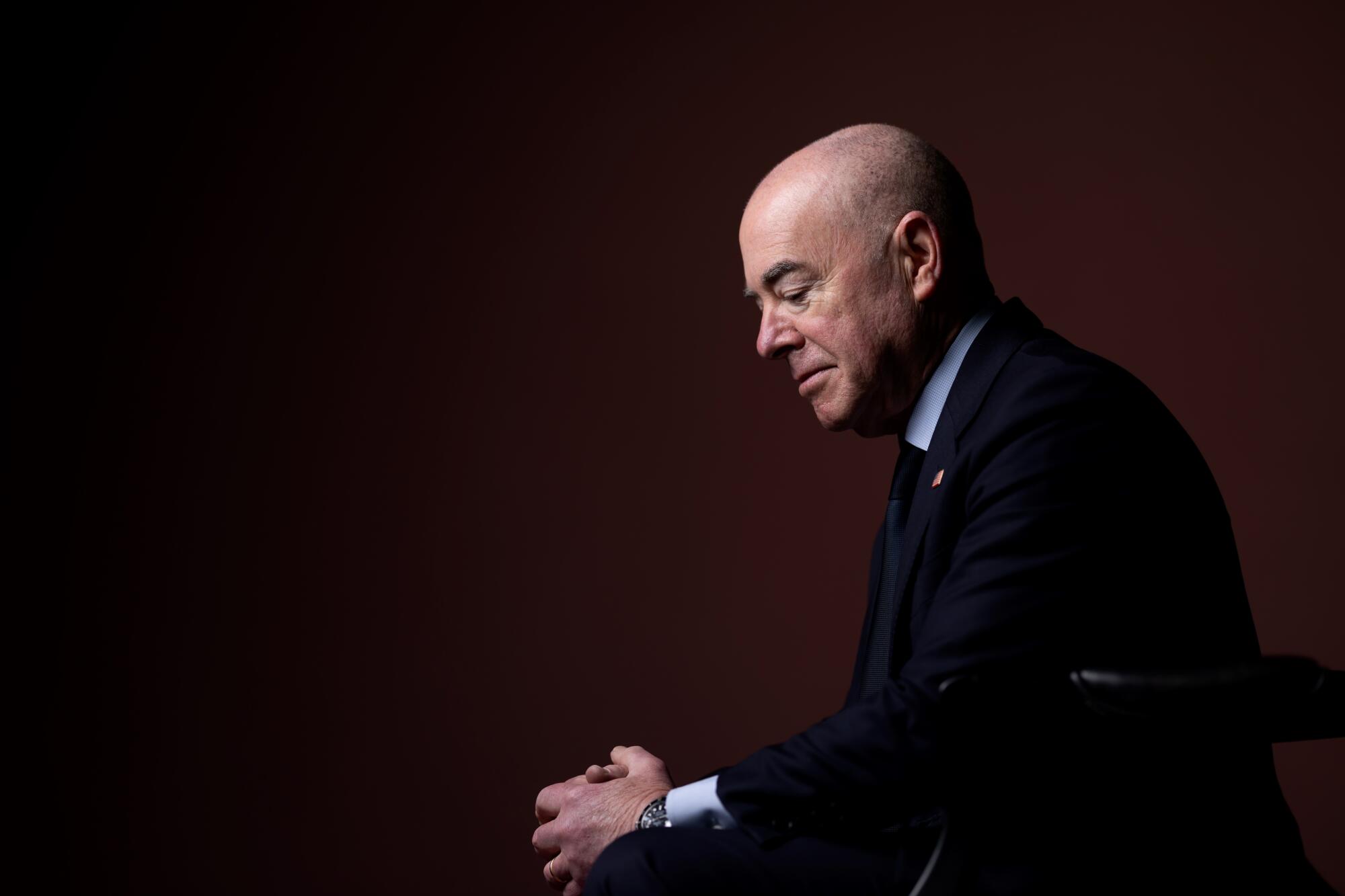
- Share via
Before Alejandro Mayorkas became leader of the nation’s largest law enforcement agency, before unauthorized migrant crossings soared at the southern border, before House Republicans made him the first U.S. Cabinet official impeached in nearly 150 years, he was “Ali,” a Cuban immigrant whose family settled in Beverly Hills.
In 1959, Mayorkas was born in Havana to a Jewish Cuban father and a Romanian Jewish mother who survived the Holocaust. The family fled Cuba after Fidel Castro seized control.
Discover the changemakers who are shaping every cultural corner of Los Angeles. L.A. Influential brings you the moguls, politicians, artists and others telling the story of a city constantly in flux.
After graduating from Beverly Hills High School and attending UC Berkeley and Loyola Law School, Mayorkas became the country’s youngest U.S. attorney. He was based in Los Angeles, where more than one in three people are immigrants.
In 2009, then-President Obama appointed Mayorkas director of the U.S. Citizenship and Immigration Services, where he implemented Deferred Action for Childhood Arrivals, or DACA, the program that extended deportation protections to young immigrants.
He went on to become deputy secretary of the Department of Homeland Security, leading the agency’s response to the Ebola and Zika viruses, cybersecurity negotiations with Israel and China, and talks with the Cuban government on import security and travel.
He has overseen a historic expansion of temporary immigration protections, welcoming hundreds of thousands of people.
Mayorkas was confirmed as the first immigrant and Latino Homeland Security secretary shortly after President Biden took office, taking over a department roiled by leadership turnover and low morale.
Unprecedented migration has since strained resources and caused an unending political dilemma. In 2021, a photo appearing to show a horse-mounted Border Patrol agent whipping Haitian migrants sparked outrage. Mayorkas initially defended the agent’s actions, but later an investigation into them was opened by Customs and Border Protection, prompting conservatives to call for his impeachment.
Those calls grew with frustration over the administration’s handling of the U.S-Mexico border, though critics said disagreement over policy wasn’t an impeachable offense. In February, Republicans succeeded in the House, but, in April, failed in the Senate.

Beyond immigration, Mayorkas, 64, has prioritized addressing the intersection of artificial intelligence and cybersecurity, as well as countering domestic terrorism.
He has overseen a historic expansion of temporary immigration protections, welcoming hundreds of thousands of people, including from countries such as Afghanistan, Venezuela and Ukraine. The most recent program, protecting more than 500,000 immigrant spouses and stepchildren of U.S. citizens, is the largest immigration initiative since DACA.
He also oversaw implementation of a Trump-era border barrier expansion, restarted deportations to Cuba and sent thousands back to Haiti amid a political crisis. Last year, DHS ended a Trump-era border policy used to turn away asylum-seekers that Mayorkas had publicly criticized but relied upon to control the situation at the border.
Amid growing political pressure — including from Democratic leaders — to reduce the number of migrants allowed into the U.S. as cities struggle to shelter them, Mayorkas’ agency recently began restricting asylum access when border crossings are high.





